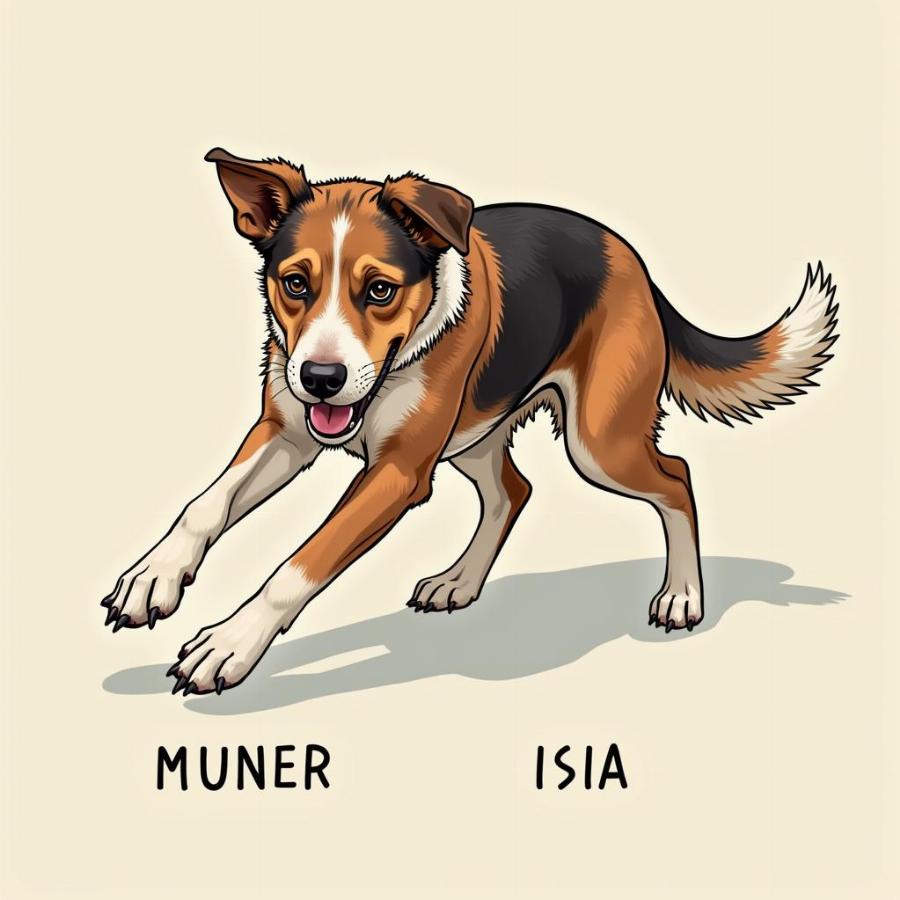When talking or writing about our furry friends, it’s easy to get caught up in the excitement and forget the nitty-gritty details like capitalization. So, do you capitalize dog breeds? The short answer is: sometimes. Knowing when to capitalize and when to leave lowercase can be tricky, but this article will guide you through the ins and outs of dog breed capitalization, helping you write and speak about your favorite pups with confidence and accuracy.
Understanding Dog Breed Capitalization Rules
The basic rule of thumb is to capitalize breed names derived from proper nouns, such as geographical locations or people’s names. Think German Shepherd (Germany), Yorkshire Terrier (Yorkshire), or Doberman Pinscher (Karl Friedrich Louis Dobermann). However, descriptive breed names like golden retriever or short-haired pointer are generally lowercase. This distinction helps clarify whether we’re talking about a specific breed or a general characteristic. For example, “golden retriever” refers to the breed, while a “golden dog” simply describes a dog’s coat color.
When to Capitalize Dog Breed Names
Let’s dive deeper into specific scenarios when capitalization is necessary. As mentioned, capitalize breeds named after places. Think of the Bernese Mountain Dog (Bernese Oberland), Australian Shepherd (Australia – although interestingly, the breed originated in the US), or the Tibetan Mastiff (Tibet). Similarly, breeds named after people, like the Jack Russell Terrier (Reverend John Russell) or the King Charles Spaniel (King Charles II of England), also get capitalized. This rule also applies to hyphenated breed names like the German Short-haired Pointer.
When Not to Capitalize Dog Breed Names
On the flip side, descriptive breed names typically remain lowercase. This includes breeds like the beagle, dachshund, or poodle. These names describe the dog’s appearance, function, or temperament rather than originating from a proper noun. So, while you’d write “My Beagle loves to howl,” you wouldn’t capitalize “beagle” because it’s a descriptive term. Imagine saying, “My brown dog loves to howl.” You wouldn’t capitalize “brown,” and the same principle applies to descriptive breed names.
Capitalization in Mixed Breeds
Things get a little more complex with mixed breeds. Generally, if you know the breeds in the mix, you should capitalize those individual breed names. For example, “My dog is a Labrador Retriever-Golden Retriever mix.” However, if you’re unsure about the specific breeds and just using general descriptive terms, lowercase is appropriate, like “My dog is a medium-sized mixed breed.”
 Mixed Breed Dog Capitalization Example
Mixed Breed Dog Capitalization Example
Common Capitalization Mistakes to Avoid
A common error is capitalizing the word “dog” unless it’s the first word of a sentence. For instance, “I love dogs” is correct, but “My Dog is a Golden Retriever” isn’t. Similarly, avoid unnecessary capitalization within breed names like “Golden retriever” or “German shepherd.”
Why Proper Capitalization Matters
While it might seem like a minor detail, proper capitalization demonstrates respect for the breed’s history and standards. It also adds to the clarity and professionalism of your writing, ensuring you are communicating effectively with other dog enthusiasts. Just like you wouldn’t want to misspell someone’s name, using the correct capitalization shows that you value accuracy and appreciate the nuances of the canine world.
FAQ: Your Burning Capitalization Questions Answered
Q: Do I capitalize “mix” when referring to mixed breeds?
A: No, “mix” is not capitalized unless it begins a sentence.
Q: What about breed nicknames like “wiener dog”?
A: Nicknames are generally lowercase.
Q: Is it ever okay to capitalize descriptive breed names?
A: While lowercase is standard, some kennel clubs or breed organizations might have their own style guides that differ. It’s always best to refer to their specific guidelines if you’re writing for them.
Q: Do I capitalize breed names when used as adjectives?
A: Yes, for example, “German Shepherd puppies.”
Q: What if I’m unsure about the capitalization of a specific breed?
A: Consult a reputable dog breed encyclopedia or dictionary.
Further Reading on Beaut Dogs
Check out these other informative articles on Beaut Dogs:
Conclusion
Mastering dog breed capitalization might seem trivial, but it reflects a deeper understanding and appreciation for the unique characteristics of each breed. By following these simple guidelines, you can confidently write and speak about our four-legged friends, ensuring clarity and respect for their heritage. So, the next time you’re discussing dog breeds, remember these rules, and you’ll be barking up the right tree!
Beaut Dogs is your go-to resource for everything dog-related, offering expert advice and a wealth of information on all aspects of dog ownership. From breed specifics to care guides, Beaut Dogs is here to support you every step of the way. When you need expert advice, contact us at [email protected] for detailed and accurate information. Visit us at https://beautdogs.com today!